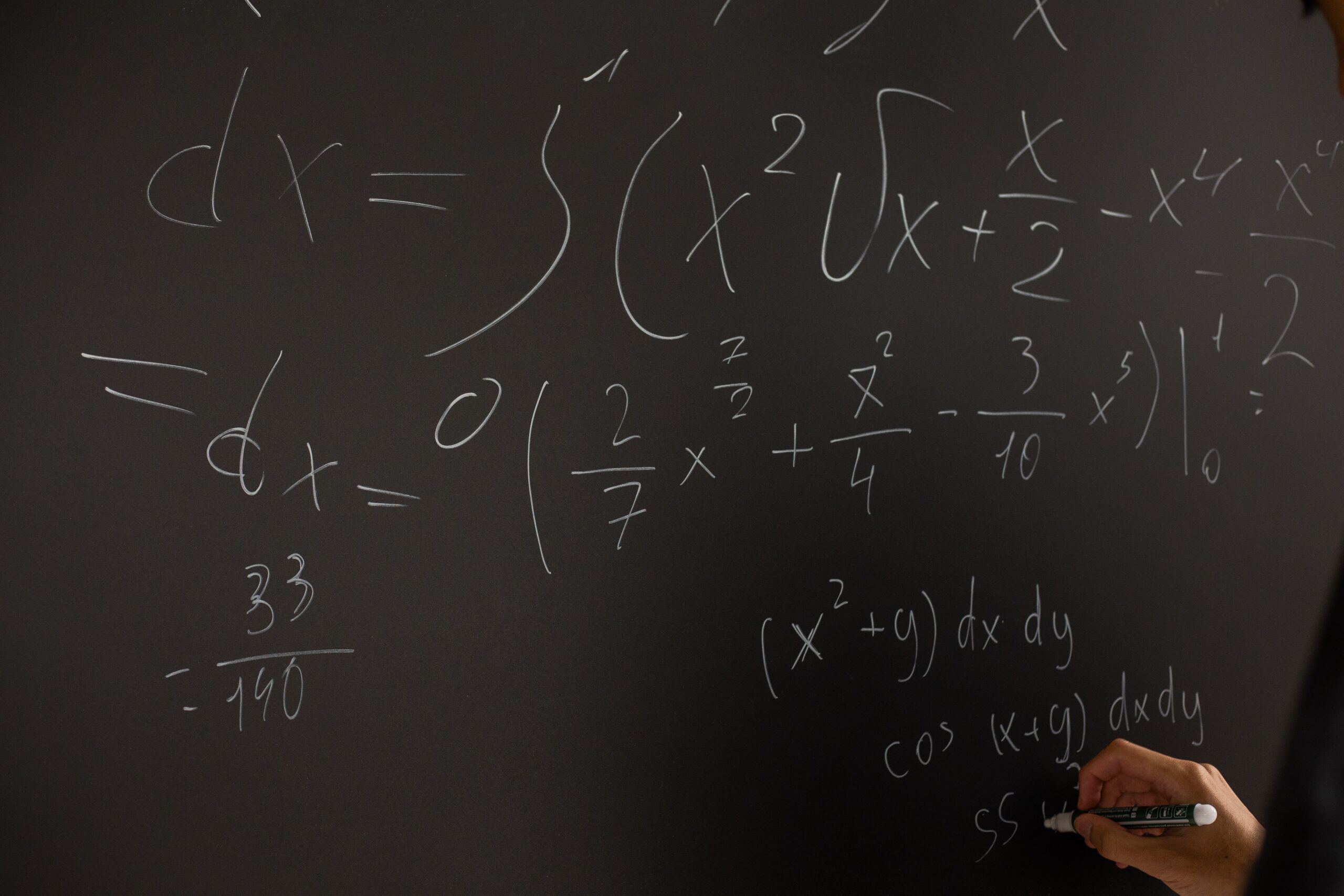Have you ever heard of the law of iterated expectations? It’s an important concept to understand if you are a business leader trying to make successful decisions for your company. This law states that when making any decision in a given environment, the long-term outcomes are based on all previous decisions made in similar situations, whether positive or negative. That means understanding how past decisions have affected current results and planning accordingly is absolutely critical if you want max returns and success for your organization. In this blog post, we will discuss more about what this law means and explore strategies for leveraging it to create successful decisions within your business model.
Contents
Overview Of The Law Of Iterated Expectations
What Is The Law Of Iterated Expectations?
The law of iterated expectations is an idea of decision-making and behavior that suggests that the long-term outcome of any situation or action will be influenced by all previous decisions and resulting outcomes. This means that when making a decision, it’s important to consider how past actions may have influenced the current situation, whether positively or negatively. By taking this into account, you can better adjust your plans for future success.
Why To Know The Law Of Iterated Expectations?
The law of iterated expectations is an important concept to know and consider when making any decision in a given environment. This is because it allows you to take into account how previous decisions have shaped the current situation, and thus plan for better long-term success. It encourages you to think beyond just one single action or outcome and instead understand the impacts of all actions taken on any given situation. By understanding how past decisions have affected current results, you can make more informed decisions that are likely to lead towards higher returns and success.
What Is The Example Of The Law Of Iterated Expectations?
An example of the law of iterated expectations is when a business decides to expand its operations into a new market. Before making this decision, they need to look at how their previous decisions in other markets have impacted their current situation. They should consider if their past expansions were successful and profitable or not and adjust their plans accordingly for better long-term success.

What Is The Formula Of The Law Of Iterated Expectations?
There is no set formula for the law of iterated expectations, however, it is important to consider how your past decisions have impacted current outcomes. To do this, you can look at the results of each decision and action taken so far and use that information to inform future plans. By understanding how your previous decisions have shaped the situation, you can make better educated choices that are more likely to bring success in the long run.
What Is The Applications Of The Law Of Iterated Expectations?
The law of iterated expectations has many applications in everyday life. It is an important concept to understand when making decisions, especially those related to business or investment. By understanding how past decisions have impacted the current situation, you can make better long-term plans that are likely to result in higher returns and success. Additionally, this law can also be applied to any situation where there is a need for decision-making over extended periods of time such as with relationships or health habits. Understanding the implications of your previous actions on the future allows for smarter choices and better outcomes overall.
What Is The Proof Of The Law Of Iterated Expectations?
The law of iterated expectations has been studied and tested, with multiple studies suggesting that past decisions do impact the result of future outcomes. This is because each decision taken influences the present environment in which we are making our choices, and therefore it is important to take into account how these decisions have shaped the situation when deciding what to do next. Additionally, this idea is also supported by game theory where repeated interactions lead to better strategies for success over time.

What Is The Reference Of The Law Of Iterated Expectations?
The law of iterated expectations is a concept that has been studied and discussed by many different scholars. It was first introduced in the 1950s by American economist Dennis Robertson, who proposed that decisions taken over time will have an impact on future outcomes. Since then, additional evidence has been discovered to support this idea from studies in game theory and decision-making.
What Is The Pros And Cons Of The Law Of Iterated Expectations?
Pros
– Can help you better understand how previous decisions have shaped the current situation.
– Allows for more informed decision making that is likely to result in higher returns and success over time.
– Helps you adjust your plans accordingly depending on past results.
Cons
– It can be difficult to accurately assess how past decisions have impacted the present.
– It requires a lot of research and analysis to understand how different decisions may affect future outcomes.
– Can be difficult to predict long-term results even after considering all available information.
What Are Tips For Proving The Law Of Iterated Expectations?
- Make sure to research and analyse the results of each decision taken: By looking at how past decisions have impacted the present, you can better understand what works for your business model and adjust accordingly.
- Consider all available information: Take into account as much data and knowledge as possible when making any decision. This will help you more accurately assess the long-term implications of your choices.
- Think beyond single actions: Understand that each action taken has a ripple effect throughout an entire system, so it is important to consider how this might affect future outcomes before committing to any course of action.
- Adjust plans based on feedback from previous outcomes: Make sure to take into account what worked or didn’t in the past and adjust plans accordingly for better long-term success.
What Are Tips For Applying The Law Of Iterated Expectations?
- Plan for the long-term: Think about how your decisions today will affect future outcomes and plan accordingly for better long-term success.
- Leverage feedback from past performance: Make sure to take into account what worked or didn’t in the past and make adjustments based on this feedback.
- Analyse data and do research: Researching and analysing the results of each decision taken can help you more accurately assess how it might affect future outcomes.
- Consider all available information: Take into account as much data and knowledge as possible when making any decision, as this will help inform better choices with higher returns over time.

Conclusion: The Law Of Iterated Expectations?
The law of iterated expectations is an important concept to understand when making any decision in a given environment. By taking into account how past decisions have impacted the current situation, you can better adjust your plans for future success. Research and analysis can help you make more informed decisions that are likely to lead towards higher returns and success over time. Ultimately, understanding this key principle and applying it within your business model can be incredibly beneficial for long-term gains.
FAQs: Expectations
What is the law of total expectation in statistics?
The law of total expectation, also referred to as the law of iterated expectations or the “tower rule,” establishes that the expected value of a random variable X can be expressed as the expected value of the conditional expectation of X given another random variable Y, denoted by E(X) = E{E(X|Y)}, assuming that the expectations exist. This principle illuminates the relationship between random variables and provides a framework for understanding their expected values.
What is the law of expectation vs assumption?
Assumptions and expectations. According to Wikipedia, an assumption is “something accepted as true or certain to happen, without proof.” On the other hand, an expectation is “a strong belief in the future occurrence of something.” These two concepts shape our understanding and anticipation of what lies ahead.
What is the expectation vs reality theory?
Expectations are the anticipation of what we believe will happen, while reality is the actual outcome. Although we desire these two to align harmoniously, they frequently diverge. This discrepancy between expectations and reality can often result in feelings of dissatisfaction and unhappiness.
What is the difference between expectations and standards?
An expectation is a firm belief in the occurrence of something in the future. On the other hand, a standard is a benchmark used for measuring, establishing norms, or serving as a model for comparative evaluation.
What are the 4 types of expectations?
Harappa Education explores various types of expectations in their program. These include conditional expectations, which are based on certain conditions being met, rational expectations that are grounded in logical thinking, set expectations which are predetermined, unrealistic expectations that may not align with reality, and adaptive expectations that can be adjusted based on changing circumstances. By understanding and managing these different types of expectations, individuals can navigate through challenges and achieve success in their personal and professional lives.
What are the 5 types of expectations?
Managers should be mindful of five key types of customer expectations: 1. Explicit expectations – Clearly stated and directly communicated by the customer. 2. Implicit expectations – Unspoken, yet still anticipated by the customer. 3. Interpersonal expectations – Relating to the quality of interactions and relationships between customers and staff. 4. Digital expectations – Pertaining to the seamless and efficient online experience customers expect. 5. Dynamic performance expectations – The need for businesses to constantly adapt and meet evolving customer demands.
What are the two types of expectations?
In his book “Creating Cultures of Thinking,” Ron Ritchhart delves into the concept of expectations, distinguishing between two types: directives and beliefs. By carefully examining these two forms, Ritchhart provides insights into the dynamics of thought and culture.
Does expectation create reality?
Expectations are the firm conviction that something will occur or be true. Above all else, our expectations shape our reality and have an impact on those in our vicinity. Through the phenomenon of self-fulfilling prophecy, individuals can either rise or fall based on the expectations and beliefs we hold.
What are the theories of expectations?
According to the expectations theory of the term structure, the long-term interest rate can be seen as a calculated blend of current and anticipated future short-term interest rates. When future short rates are projected to remain steady, the long rate will align with the short rate (along with a constant risk premium). This theory suggests that the long-term interest rate is inherently influenced by the expectations and projections of short-term rates.
What are the theories of expectations?
According to the expectations theory of the term structure, the long-term interest rate can be seen as a blend of current and anticipated future short-term interest rates. When future short rates are predicted to remain steady, the long rate will match the short rate (with an additional constant risk premium). This theory highlights the relationship between short-term and long-term interest rates and their impact on the overall financial landscape.
What method is Great Expectations?
Greatations is a robust framework that allows you to define and execute Expectations on your data. Similar to assertions in conventional Python unit tests, Expectations offer a versatile and expressive language to articulate anticipated behaviors. With Great Expectations, you can effortlessly describe and validate the expected behavior of your data in a clear and concise manner.

Trayce served as a grassroots leader and activist in Texas as President of Dallas and Texas Eagle Forum.
Trayce is Mom Caucus Member, Texas Conservative Mamas, Texas Conservative Grassroots Coalition Leader, and Grassroots America Champion of Freedom Honoree.
She currently serves as the Eagle Forum National Issues Chair on Human Trafficking.
Trayce received a Bachelor’s Degree in Marketing from Texas A&M
Currently, she homeschools her youngest child age 13 and graduated her six oldest children, ages 31 to 19.








